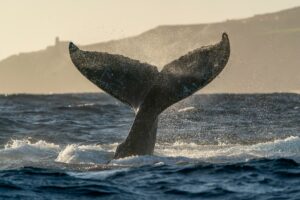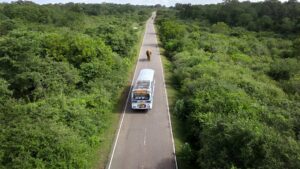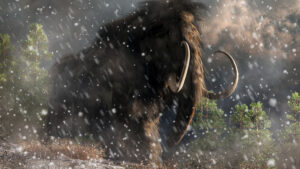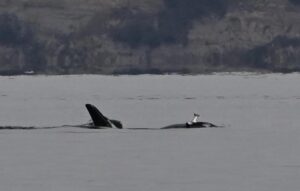The gray wolves in Chornobyl have been exposed to radiation for decades. Now it seems that these wolves have developed a resistance to cancer.
For over 30 years since the 1986 Chornobyl nuclear disaster, humans have not lived near the site. The Chornobyl Exclusion Zone covers an area of 2,600 sq km around the abandoned nuclear power plant. As thousands of people fled the site, it became an accidental nature reserve, where plants and animals flourish. There are healthy populations of wolves, boars, deer, brown bears, moose, bison, and lynx, as well as over 60 rare plant species.

Radiation-killed trees, Chornobyl Exclusion Zone. Photo: Jerry Kobalenko
This has made the Exclusion Zone popular for scientific research. The high levels of radiation experienced by all species have made it the perfect place to study the effects of long-term radiation on living creatures.
The wolves are exposed to 11.28 millirem of radiation every day. This is six times higher than the legal limit for humans. Evolutionary biologist Cara Love was intrigued by how the wolves coped with such high levels of exposure. She tagged the wolves in 2014 to track their movements and thereby calculate the amount of radiation the wolves absorbed.

Photo: Shutterstock
Unexpected immunity
The second part of the study analyzed blood samples from the wolves. These samples revealed that the wolves’ immune systems have adapted in a way similar to those of cancer patients undergoing radiation therapy. The wolves are also showing immunity to cancer. The radiation has caused genetic changes that protect them from the deadly disease.
We know that various mutations in our genes can make cancer more likely. This study suggests there may also be some mutations that reduce the risk, at least in these wolves. The team is now trying to identify these protective mutations. If they can pinpoint these genes, it could help the fight against cancer in humans.
Previous research has shown that radiation can increase genetic mutations. These mutations have made some plants more resistant to radiation. But this resistance has never been seen before in animals as complex as wolves.
The team wants to head back into the Exclusion Zone to take more samples and to continue their research. But Russia’s invasion of Ukraine has made it currently unsafe to revisit the site.






